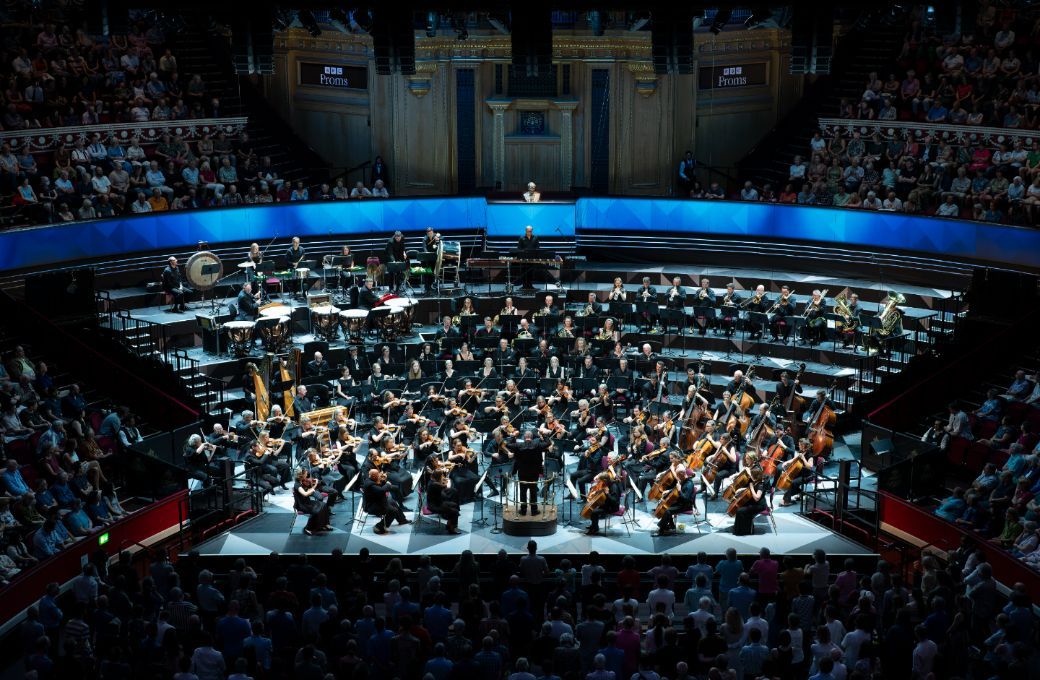Attending a concert where the music of Cassandra Miller was performed alongside that of Dmitri Shostakovich would never have seemed a likely programming choice. But that’s the unexpected but fascinating experience that was BBC Proms16, with the BBC Philharmonic under the baton of John Storgårds.

Miller’s viola concerto, I cannot love without trembling, written in 2022 as a BBC co-commission, was the first offering of the evening. The Canadian composer began by taking a recording of violinist Alexis Zoumbas as a starting point and reworking it through her unique process of “automatic singing”. This approach resulted in the folk-inspired gestures of violist Lawrence Power gliding up and down with wailing vibrato. The BBC Philharmonic complemented these lines with dreamy waves of sound that ebbed and flowed, trembling delicately—a fitting reflection of both the character and title of the work. As the music progressed, it grew more solemn. The conductor, orchestra, and soloist paced the material carefully, allowing it to unravel slowly. The piece featured beautiful instrumental blending, a strikingly intense moment of low, quiet rumbling from the bass drum, and violins plucked like Russian balalaikas—something Shostakovich would surely have appreciated. It was a quiet spectacle, simple and enchanting.
However, that delicacy didn’t last long. Shostakovich’s Symphony no. 4 began with Storgårds’ driving direction, resolute and march-like. Written during a turbulent period in the composer’s career, when he was accused of writing formalist music by the Communist Party’s mouthpiece Pravda and forced to withdraw the premiere in 1936, this intense symphony reflects the mood just before the years of Nikolai Yezhov’s Great Purge, which brought widespread death to apparatchiks, intellectuals, and ordinary people in the Soviet Union. Choosing not to perform this work might have spared Shostakovich’s life, an outcome that eluded Isaac Babel, Abram Lezhnev and Vsevolod Meyerhold, who supported him in the face of criticism.
After Miller’s hushed work, Shostakovich’s symphony felt appropriately grand, matching both the scale of the Royal Albert Hall and the nature of the work itself. The BBC Philharmonic was well synchronised, and Storgårds’ forceful and physical conducting style was fitting. Surprisingly, the louder passages were more convincing than the quieter ones, despite the orchestra’s excellent handling of softer sonorities in the previous work. The rhythmic impatience subsided, though not completely, towards the end of the first movement, giving way to a more lyrical and pensive mood. Special mention goes to the percussionists, whose playing throughout the movement – and indeed the entire symphony – was exceptional. The bassoons also delivered a splendid performance, their murky and playful tone adding a distinctive touch to the finale of the first movement.
The second movement struggled to completely shed the previous movement’s wound-up intensity, though it offered a delightful kaleidoscope of the recurring motif across various instrumental groups, ending with a playful percussion ostinato. The third movement showcased beautiful bassoon timbres, exuding out-of-place levity and carnivalesque mockery. The performance finally achieved a degree of quiet tension, interspersed with more serious, grand, and pathos-infused passages. There were even moments of hope that managed to pierce through the anxiety-ridden shroud of the entire work. The ominous finale, featuring a lulling celeste and inquisitive trombone, painted a sombre picture, just as it should. The contrast between the relaxing first piece and the much more intense second one was somewhat jarring, but the concert was enjoyable nonetheless.


